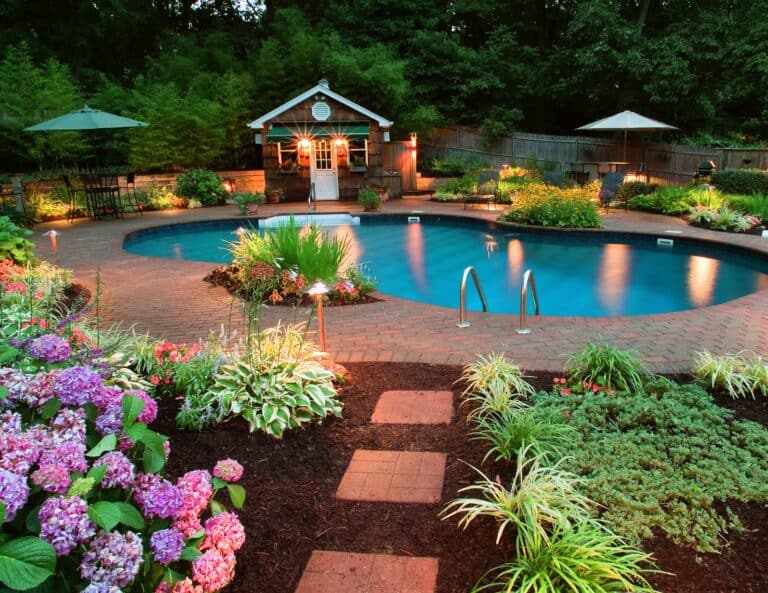Lumens Vs Watts
How Many Lumens You Need When Choose Solar Lights?
Home – Info Center – Blogs – Lumens Vs Watts: How Many Lumens You Need When Choose Solar Lights?

By Michael Zhang || Updated on 26th Feb 2024
Michael Zhang is a seasoned professional with 15 years of experience in the solar lights industry. Throughout his career, he has been actively involved in product design and developing, gaining valuable expertise and insight into the industry. Known for his dedication and professionalism, Michael has contributed significantly to the growth and success of various solar lights projects. His extensive knowledge and hands-on experience make him a trusted authority in the field, and he continues to innovate and excel in his role.
Customers often send us enquiry to ask if we have 3000W solar lights, our sales team tell them every time with regret: Sorry, we don’t want to cheat you, we really don’t have 200W solar lights.
After reading the following article, it will be very clear to you that as a professional solar light supplier, why we never offer 3000W products. Before we start the topic, let’s start with the concept of wattage.
Table of Contents
What Is A Watt?
Watt is the unit used to express power in the International System of Units (SI). In lighting, watt is often used to indicate the amount of electrical energy consumed by a luminaire. Generally speaking, the higher the wattage, the more electrical energy the luminaire consumes.
Speaking of this, I believe you have understood, through the “watt” this data, you can see intuitively is the LED lamps consume electricity, which directly affects your home electricity bill, if you want to receive a huge electricity bill, please boldly go to the highest power lamps or electrical appliances it.
What Are Lumens?
Lumen is the unit of luminous flux used in the International System of Units (SI). Lumen describes the total amount of actual visible light emitted by a light source, and is often used to measure the brightness or light output of a luminaire in the lighting industry. Typically, the higher the lumen value, the brighter the light produced by the luminaire.
Regarding lumens, it is very simple to remember that the larger the lumen parameter on the luminaire’s packaging, the brighter the luminaire proves to be.
Speaking of this, you should be very puzzled, if this is the case, then can I choose both bright, but also power-saving lamps? Next, let us introduce the significance of “luminous efficiency”.
Luminous Efficiency Definition
If you want the lamps to be both bright and power-saving, we have to go for LEDS with higher luminous efficiency. Luminous efficiency is the ratio of luminous lumen to power. For example, the lamp LEDs used in our company’s solar lamps are all 160lumen/wattage, and other companies use 80lumen/wattage LEDs, assuming that both of our products are 1000lumen, what will happen?
Wattage of our company’s product: 1000lumen/(160lumen/wattage) = 6.25wattage
Wattage of the other company’s product: 1000lumen/(100lumen/wattage) = 10.0wattage
Assuming that both lights are on continuously for 10 hours a day.
The power consumption of our lamp is: 6.25wattage*10hours=62.5wh.
The power consumption of other companies’ lamps is: 10wattafe*10hours=100wh.
In other words, our lights can help you save 37.5wh of electricity per day.
But it should be noted that the higher the luminous efficiency of the lamp LEDs the more expensive, so many manufacturers in order to save costs are not willing to use too expensive lamp LEDs.
For solar lights, there is no electricity bill, so can we choose a very high wattage product? The answer is: no!
Is The Higher The Wattage,The Much Brighter?
If a sale tells you: “the higher the wattage the brighter the solar light, please choose our 3000wattage solar light”. you can just tell him: this is not true! Please tell me the real lumens!
Why is a 3000wattage solar light not real? Let’s verify this by working backwards:
If you buy a 3000wattage solar light, and it stays on for 8 hours a night, the amount of electricity sold per night is: 3000wattage * 8hours = 24kwh, which requires a 24kwh battery pack inside the light body, which is equivalent to 40% of the capacity of a Tesla Model S battery, no matter whether it’s from a cost perspective or a space perspective. This is completely impossible.
Therefore, as a reliable solar light supplier, it’s not just a matter of falsely labelling the wattage to prove how “bright” it is, but rather finding a balance between brightness and battery capacity, so as to ensure that the product is a good product in the true sense of the word.
How To Buy The Right Brightness Solar Lights?
There exists a wide range of solar light products in the market, which have different designs, technologies and performances, while the authenticity of the information is hard to judge, which makes it not easy for us to buy the right brightness of solar lights. Never mind, follow the three steps below, I believe you will be able to buy the most suitable solar lights.
Determine Light Placement
Solar lights can be installed in a wide range of scenarios, including walls, fences, pathways, decks, pools, posts, flagpole, patios, landscape etc. For different installation scenarios, we recommend different lumen products.
Walls: If you just want to decorate your walls, we recommend 100-300lumen, if you want to use it for emergency safety, we recommend you to buy more than 500lumen.
Pathways: Usually used for both decoration and illumination, so it is recommended to buy 300-500lumen products.
Flagpoles: Usually used to light up flags in dark areas, 300-500lumen is recommended.
Landscapes: It needs to be judged according to the height of the landscape, usually 200-300lumen is recommended.
Fences, Decks, Pools, Patios: usually used for decoration, and generally a large area, to install several lights at the same time, not a separate one, so it is recommended to buy 10-50lumen.
Define Your Lighting Objectives
Do you want the solar fixture to stay on all night? Or do you want the solar light to light up only when people walk by? This determines whether you need to buy solar lights with sensors or regular solar lights. Generally speaking, solar lights with sensors are brighter and more expensive, so you need to combine your needs to make a decision here.
Check The Parameters Of The Solar Lights
It is very important to check the parameters of the product before you buy the solar lights, because these parameters can help you understand the performance of the product, the applicable scenes and the comparison with other products. By checking the parameters, you can also understand the performance indexes of the solar lights such as the luminous efficacy, the lumens, the charging efficiency, the working time, the induction time and so on. These indicators can help you evaluate whether the solar light meets your needs and choose a product with better performance.
For an in-depth study on battery judgement, read the blog: Unveiling 5 Key Criteria for Assessing Lithium Battery Quality!
To learn more about solar panels, read the blog:What Are Solar Panels Made Of?
FAQs
It depends on the luminous efficacy of the lamp bead, usually 100lumen/wattage, so 1000lumen is 10wattage.
No, higher wattage means more power consumption and higher lumens means brighter LEDs.
Both are important, but lumen is the most important factor to consider when purchasing solar lights.
You are correct. The greater the luminous efficiency, the more energy efficient the product.
No. For a given amount of battery power, the higher the wattage, the more power consuming it is and the shorter the product will work.
No, it is best to choose the right lumens according to different installation scenarios, if the pursuit of high lumens will only increase the purchase cost.
Conclusion
Wattage and lumens are both important, it’s just that their importance is reflected in different places, the wattage can determine the amount of electricity consumed in your home, and the lumens can judge the brightness of the product, the most ideal product is the low wattage and high brightness, which is what we are constantly striving to accomplish when we develop our solar lights.
Committed to providing consumers with the most practical value of solar light products is our company’s philosophy, we are also using our efforts to tell the market that not all solar light products are of poor quality, so if you want to choose the best quality solar lights products from Fligreen, Please contact us!
Related Blogs
Share Via:
Get in Touch with Us Now!
Got questions or feedback? We’d love to hear from you! Just fill out the form below, and our friendly team will respond ASAP.

